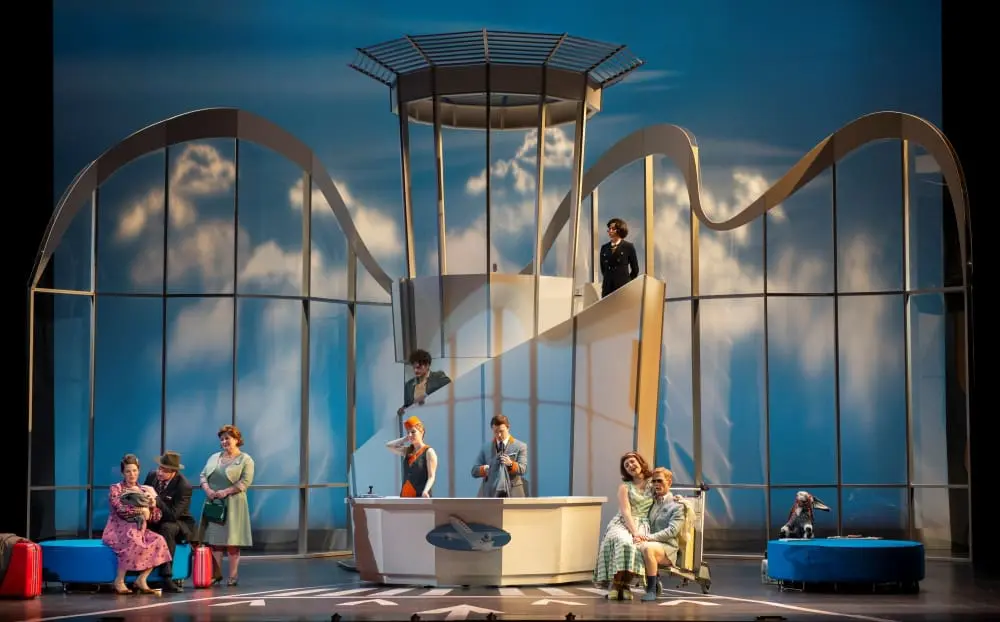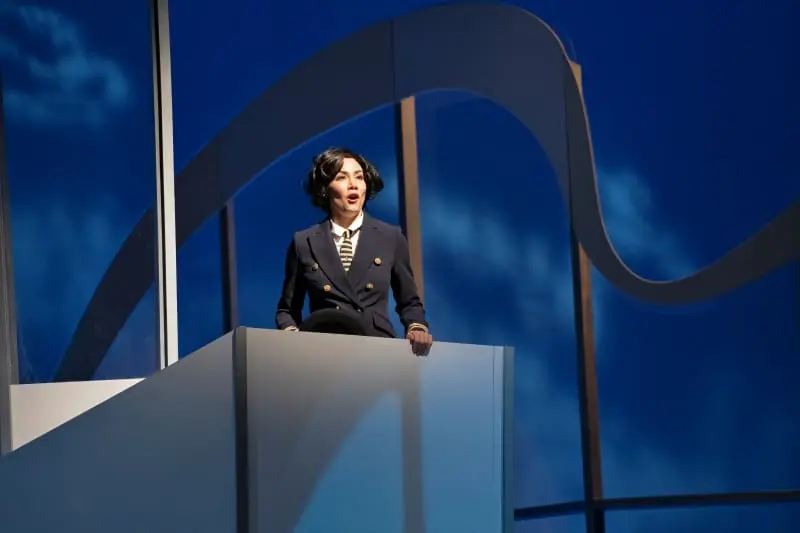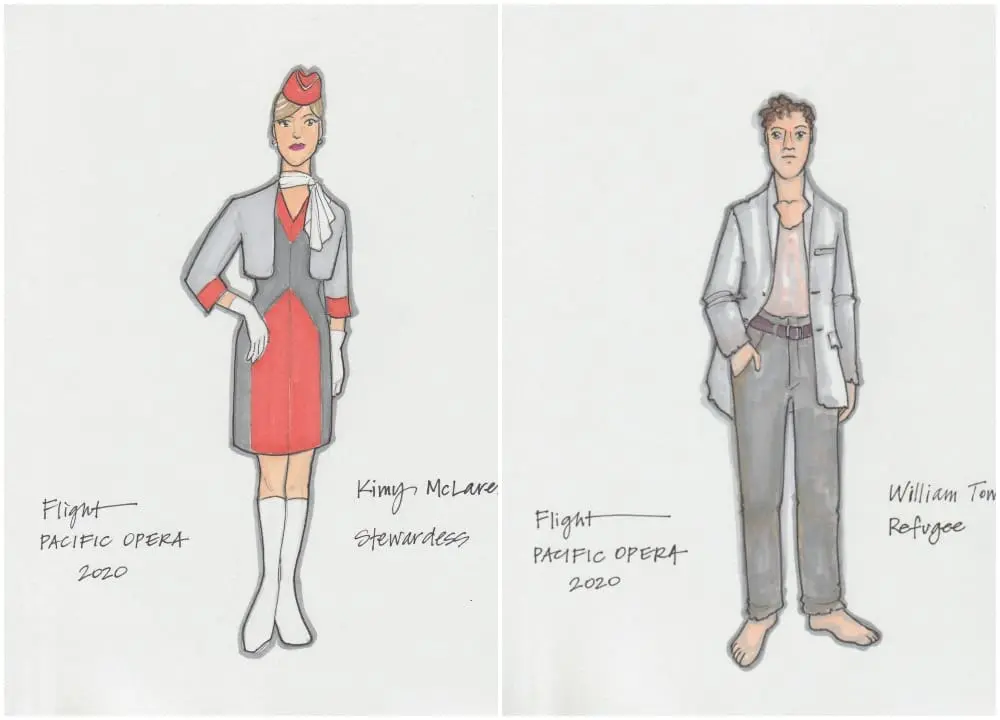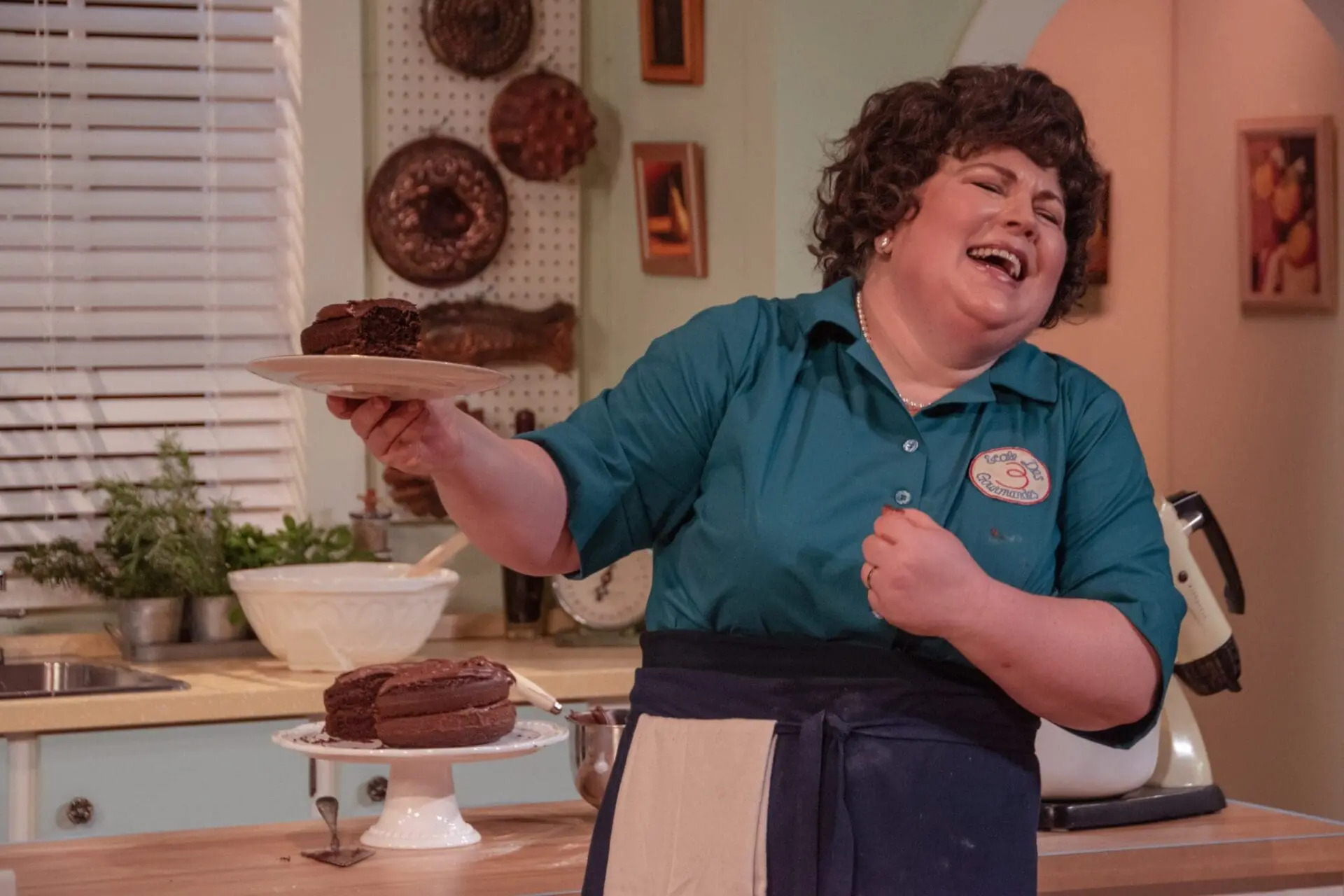POV’s Flight, English composer Jonathan Dove’s 1998 collaboration with librettist April De Angelis, soared high enough on Feb. 20th at Pacific Opera Victoria that it may even have converted die-hard contemporary opera haters into new music believers. It’s a production of great energy, commitment, and accomplishment on all levels.
Loosely based on the true story of Mehran Karimi Nasseri, an Iranian refugee unable to leave Paris’s Charles de Gaulle Airport for 18 years, Flight tells the story of a nameless man, known only as the Refugee (countertenor William Towers), trapped in an airport terminal without papers. Barefoot and scruffy, he avoids the Immigration Officer (baritone Justin Welch) while scrounging food where he can and begging both for money, and more poignantly, for connection, from a series of passengers and flight attendants waiting to begin their journeys. Watching over it all is the Controller (soprano Sharleen Joynt), observing all the comings and goings below her tower with a jaded, misanthropic eye, eventually becoming the voice of every traveler’s nightmare when she announces that a severe storm has grounded all flights.
Most of the characters in POV’s Flight are familiar—archetypes if not stereotypes. There is the Older Woman (mezzo Emilia Boteva), 52, hoping the 22-year-old she met on holiday in Majorca will stay true; and the Steward and Stewardess (baritone John Brancy and soprano Kimy McLaren), engaging in steamy sex wherever and whenever possible. The Minskman and Minskwoman (bass baritone Neil Craighead and mezzo Allyson McHardy) are a diplomat and his heavily pregnant wife on their way to a new post in cold, grey Belarus, while Tina and Bill (soprano Jacqueline Woodley and tenor John Robert Lindsey), the only characters with names, are hoping a tropical holiday, and a self-help book, will rekindle their marriage.
Like the Refugee, these characters are all in some way trapped and yearning for a new life, which may not sound profound or new or exciting, and certainly not amusing. But in the hands of De Angelis and Dove, POV’s Flight manages to be all of those things. De Angelis’s libretto is witty and even laugh-out loud funny at times: when the randy Steward and Stewardess actually have to talk to one another, all they can come up with are inanities—when she says “you’ve got identical eyes,” he replies “you’ve got thighs.” At other times, De Angelis captures intense personal emotions, such as the Minskwoman’s fear of losing herself, the life she knows and her loves to the demands of a child. Dove’s score, although sometimes over-orchestrated and simply too dense, rounds the corners of the characters and gives them further depth and humanity beyond their words.
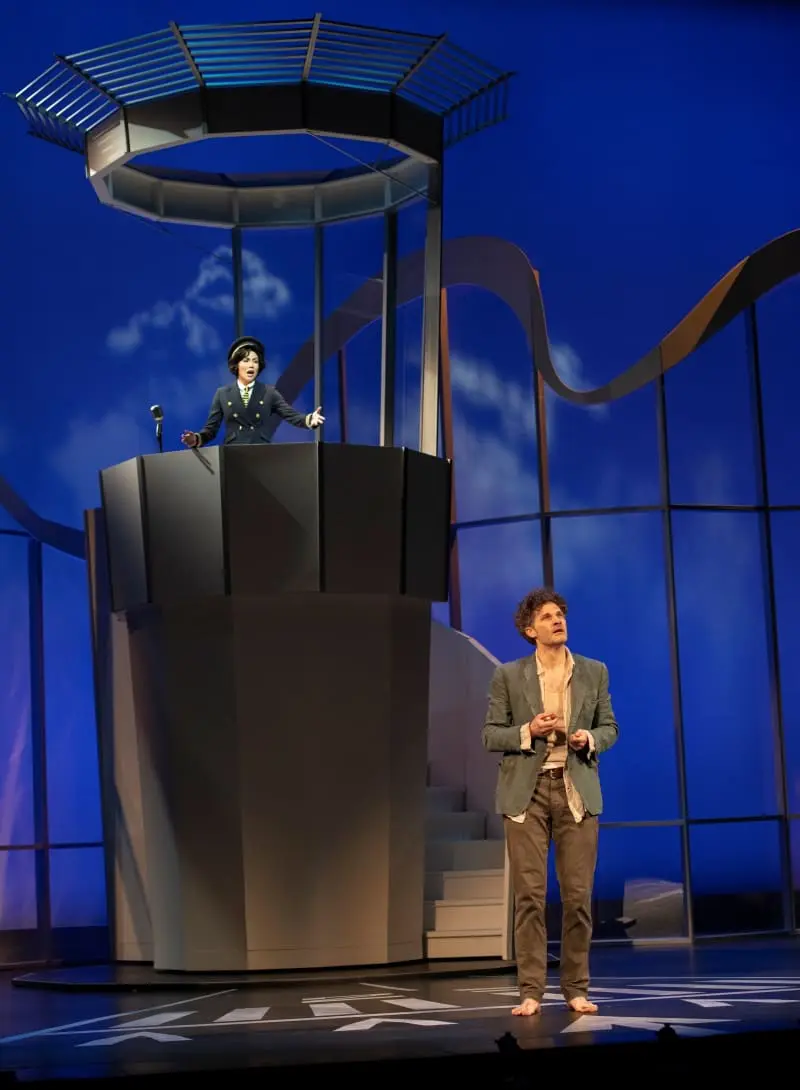
Sharleen Joynt (Controller) and William Towers (Refugee) in Pacific Opera Victoria’s Flight. Photo: David Cooper Photography.
As a whole, POV’s Flight —it’s Canadian premiere—has a distinctly American feel. Dove’s music has the propulsive drive of California’s John Adams, with lots of percussion and swiftly changing rhythms, combined with touches of Broadway musicals like West Side Story as it veers from urban beats and jazzy complexity to plaintive simplicity. Director Morris Panych and his team of set designer Ken MacDonald and costume designer Dana Osborne cleverly build on that American tilt by using the original Trans World Airlines (TWA) terminal at New York’s JFK Airport as the inspiration for the set’s high, circular tower and curving glass walls. The same 50s/60s period in which it was built infuses the retro costumes, complete with white go-go boots for the Stewardess. The 60s feel also helps place the opera just enough out of our time to avoid distracting questions about how a refugee could escape security for so long; of course, he couldn’t today, but might have been able to then.
Dove’s writing for ensembles is fabulous, with segments of polyphony that send shivers up and down the spine, and the cast—excellent from top to bottom—as well as the orchestra under conductor Timothy Vernon, delivered them beautifully. The composer’s arias, too, are all extremely effective, allowing each ensemble member at least one moment to shine.
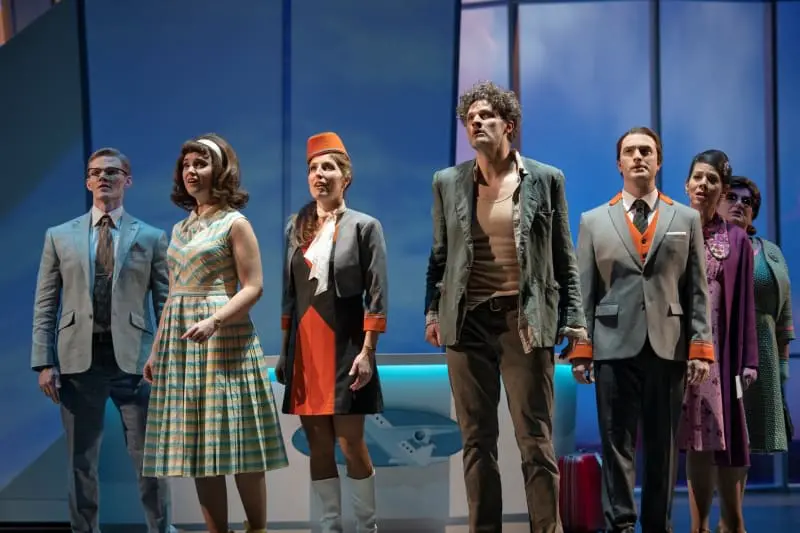
John Robert Lindsay (Bill)), Jacqueline Woodley (Tina), Kimy McLaren (Stewardess), William Towers (Refugee), John Brancy (Steward), Allyson McHardy (Minskwoman), Emilia Boteva (Older Woman) in Pacific Opera Victoria’s Flight. Photo: David Cooper Photography.
Of those arias, and their singers, three stood out in this production. As the pregnant Minskwoman, Allyson McHardy begins as unsympathetic: she refuses to fly to Minsk with her husband for no obvious reason, and appears selfish and self-indulgent when she later tries to explain her feelings about being pregnant. Yet McHardy, with her warm and chocolaty mezzo, so easily inhabits the role, she makes it clear that it is fear, not lack of love, driving her hesitation. We are fully on her side by time she finishes. Sharleen Joynt, too, is a stand out, with moments of Queen of the Night-like glory. As the Controller, she is icy when required, but when she fully unleashes her coloratura to sing with and against the storm, she borders on otherworldly.
As soon as he come on stage, from the opera’s very first notes, William Towers’ Refugee is marked as an outsider from his unearthly countertenor to his lack of shoes—but he is not downtrodden. He may beg for food, yes, but he has somehow not lost his sense of self. When he finally reveals the story behind his state-less limbo in Act III (he and his twin brother, who carried their papers, stowed away inside the wheel covers of a jet; only he survived), his resonant and powerful upper range and exquisite tone make the aria a jewel. We now yearn for him to succeed, to build a new life, perhaps with the Controller who holds out her hand to him as the last notes fade away.
Flight’s final two performances are February 28th and March 1st at the Royal Theatre in Victoria, British Columbia.


